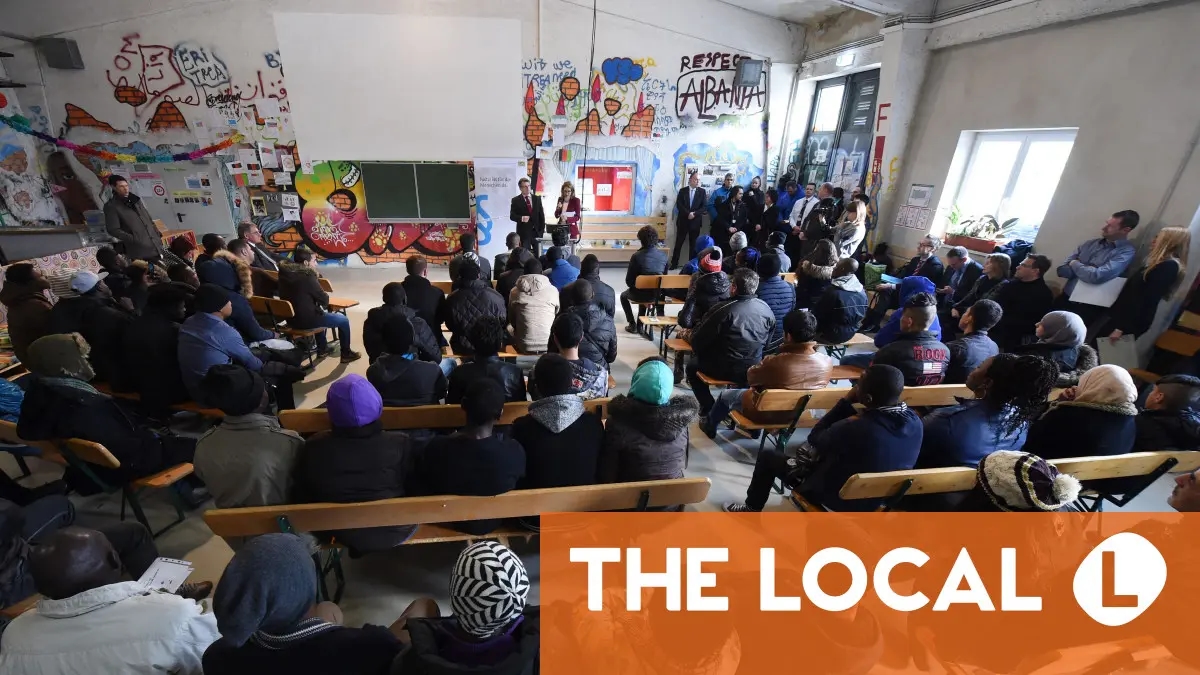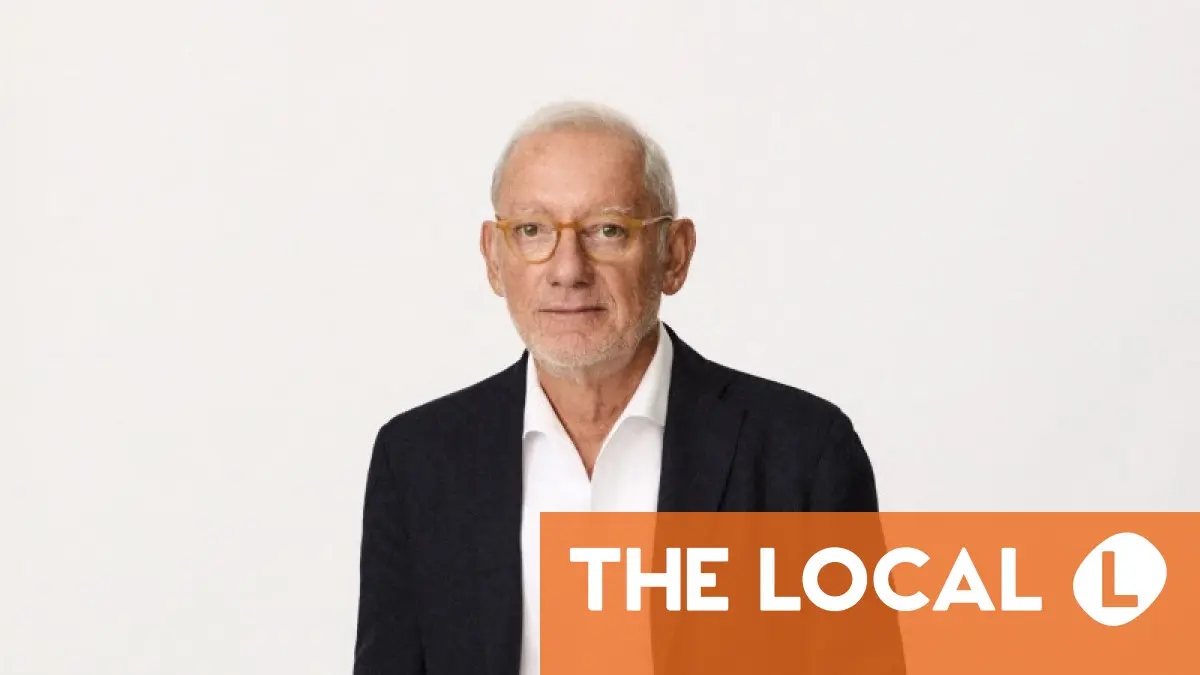Spain and NATO

Donald Trump returned to the fray last night (Spanish time). This was his third warning in ten days, forcing Spain to commit to dedicating 5% of its gross domestic product to defense spending within ten years, as demanded by the United States president of all NATO member countries last June.
First warning: October 9. During an interview at the White House with Finnish President Alexander Stubb , Trump suggests that Spain should be expelled from NATO if the Spanish government does not officially accept the 5% commitment. “They’re doing well [economically], too. The funny thing is, because of a lot of the things we’ve done, they’re doing well. They have no excuse not to do it. But that’s okay. Maybe you should expel them from NATO,” Trump told Stubb. The Finnish president had traveled to Washington to close a contract valued at $6.1 billion for the construction of eleven icebreakers for the United States, a clear sign that the Trump presidency is serious about conquering the Arctic.
October 14. Trump threatens to impose specific tariffs on Spain if it doesn't comply with the 5% demand. "It's possible that he will do it [impose tariffs]. Spain must be punished for that..." he said hours after shaking hands with President Pedro Sánchez in Sharm el Sheikh, Egypt, where the signing of the ceasefire agreement in Gaza took place.
Read alsoOctober 17. “Spain is not being loyal. It's the only one. The rest [of the countries] have indeed raised the rate from 2% to 5%, but Spain disagreed with that. It's very bad that they did that. I think Spain should be reprimanded, but that's up to them, NATO, and Spain,” Trump declared last night, after meeting with Ukrainian President Volodymyr Zelensky at the White House. This meeting did not involve a public humiliation of the Ukrainian leader, as occurred last February.
For the past couple of weeks, there hasn't been a press conference in which the President of the United States doesn't refer to Spain in threatening tones. It's something unique in history. In the past, threats existed, but they were conveyed differently. Obviously, this sequence includes the much-discussed handshake between Trump and Pedro Sánchez, in which the latter displayed the reflexes to resist being overpowered. Those twenty seconds magnetically captured the attention of millions of people in Spain. Those twenty seconds are a lesson in politics, from which Sánchez did not emerge unscathed.
People over 57, those who were old enough to vote in the referendum on Spain's continued membership in NATO (January 31, 1986), will have experienced very particular feelings these days. Those who voted in favor of remaining in NATO will have reflected on the changing times. In 1986, US President Ronald Reagan tried not to be intrusive in the Spanish referendum, aware that explicit US interference would have mobilized a negative vote, which was high (43.15%).
Expulsion from NATO? Tariffs? Trump is sending messages to European countries to pressure Spain.The "Yes" vote won the referendum (56.8%) after Felipe González hinted that he was prepared to resign if the result was adverse. Those who voted "No" and are still alive must have smiled these days. Not even in their wildest dreams could they have imagined in 1986 that thirty-nine years later, a US president would threaten Spain with expulsion from NATO. "That's not going to happen!" some of them must be thinking. That was a very divisive referendum, in which notable enmities were forged within the Spanish left. It was a different time.
Trump constantly acts to attract public attention. Expulsion from NATO? Tariffs? Trump is sending messages to European countries to pressure Spain. That's the key. We are at a delicate moment. The Pentagon is currently assessing how many troops it will withdraw from Europe and where it will withdraw them from, whether to send them home or transfer them to Asia, the scene of the new "Cold War" with the People's Republic of China. There are jitters in Poland, the three Baltic republics, Scandinavia, Germany, and various Eastern European countries. While the Pentagon makes a decision on the withdrawal of troops from Europe, Trump is trying to reach an agreement for a ceasefire in Ukraine. Both scenarios are in communication.
The consolidation of Russia's occupation of Ukrainian territories and a significant withdrawal of US troops from European soil would cause great anxiety in the countries bordering the Baltic Sea and almost all of Eastern Europe. The issue of Spain must be placed in this context. Spain's rejection of the 5% target could be imitated by other European countries and, above all, could incentivize various countries not to comply with this commitment. In this regard, the last NATO General Assembly (June 25, 2025) was a grand farce. Some countries signed up to the 5% target to avoid a backlash from Trump, but they don't plan to meet that goal in the next ten years. They can't. They lack popular support for it and would have to make costly cuts in social spending. This is the case, for example, in Italy, a country with a military spending quota very similar to Spain's. With a modest economic growth of 0.7%, the Italian government will have very serious difficulties meeting the 5% target by 2035. But in Rome, Giorgia Meloni has opted for a policy of flattering Trump, confident that this will ultimately generate greater room for maneuver. The Italians also have a Fellini-like imagination and are considering the possibility of classifying the construction of a costly bridge over the Strait of Messina, connecting the Italian peninsula with the island of Sicily, as a military expenditure. This much-discussed bridge would be built with aid from the European Union. They have no shortage of imagination.
Read alsoThe Spanish government has opted for a flat "no" to the 5% because, last June, under pressure from various quarters, Sánchez could not return to Madrid with a firm commitment to dramatically increase military spending. That would have meant the end of his term. Sánchez opted for an openly confrontational stance with Trump to strengthen his position in the internal Spanish debate. No to the 5% and maximum solidarity with Palestine. These were the lifelines that helped Sánchez reach the shores of September alive after a disastrous summer.
Trump has evidently taken the bait. It was only to be expected. Sánchez's most sensitive issue isn't the US president's bravado. Last Thursday's scene in Sharm el-Sheik was beneficial for the Spanish president in terms of his image. Very few people can imagine Alberto Núñez Feijóo greeting Trump at such a difficult moment.
Spain's weak spot lies elsewhere: the anger of some European countries, especially those in the Baltic region. The existence of this anger is beginning to be reflected in some European publications. Two days ago, the magazine Político , with considerable influence in Brussels, published a highly critical article about Spain's position, citing the bad mood of the Swedes and the Baltics. "If the southern countries don't help us now, they shouldn't ask for our collaboration later to address their problems of uncontrolled immigration on the southern flank," commented one of the sources cited by the aforementioned magazine.
Perhaps for this reason, Spain has begun to send some signals. Last Thursday, Defense Minister Margarita Robles announced that Spain is willing to actively participate in the PULS (Prioritization of Ukrainian Resilience and Logistics) program, a NATO and US initiative to coordinate and finance the acquisition of weapons and supplies for Ukraine. This program allows NATO member countries to contribute funds and resources to purchase military equipment, such as air defense systems and ammunition, which are then delivered to Ukraine. Simply put, European countries purchase the material from the United States and then deliver it to the Ukrainian armed forces. Spain was previously excluded from that program, but now it may be included. President Sánchez has recently reiterated Spain's efforts to improve cybersecurity (a concept included in military spending), and Margarita Robles has hinted that the 5% commitment could be met within ten years.
The pressure that might come from Europe. That's the question.
lavanguardia




